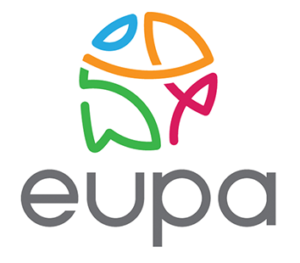Climate change is undeniably reshaping our world, and its effects are increasingly evident in the form of extreme weather events. As our planet heats up, hurricanes, floods, wildfires, and heatwaves are becoming more frequent and severe. In the face of this global challenge, MOAS is working in Disaster Risk Reduction (DRR) to empower vulnerable communities and minimize the impact of natural hazards, like cyclone Hamoon in Bangladesh.
Climate Change and the Global Surge in Disasters
According to the Intergovernmental Panel on Climate Change (IPCC) 2023 synthesis report, global surface temperatures have already increased 1.1 degrees Celsius since 1900. This rise is attributed to human activities, particularly the emission of greenhouse gases. But what does this global warming mean for extreme weather events?
The IPCC report reveals that climate change is already influencing many weather and climate extremes across the globe. The risk of disasters caused by natural hazards is rising due to Climate change and the lack of disaster preparedness. The number of climate-related natural hazards has almost doubled in the last 20 years compared to the previous 20.
Bangladesh’s Cyclone ‘Hamoon’ and the Plight of Vulnerable Communities
Recently, Bangladesh faced Cyclone ‘Hamoon,’ a severe cyclonic storm that caused a landfall at Cox’s Bazar on October 24th. This disaster left a trail of destruction, affecting over 470,000 people, including nearly 2,500 Rohingya refugees. More than 30,000 households in local communities were damaged, leaving over 40,000 people temporarily displaced. Over 900 shelters housing Rohingya refugees were also affected, displacing nearly 800 people.
Events like this highlight the importance of disaster preparedness. While we tackle the causes of climate change, we also need to minimize its impact by expanding DRR practices and ensuring that affected communities are prepared to deal with the influx of natural hazards.
MOAS’ Role in Disaster Risk Reduction
MOAS is committed to Disaster Risk Reduction and resilience-building for vulnerable communities. Our work encompasses a wide array of programs aimed at empowering individuals and communities to respond effectively to natural hazards and save lives. MOAS provides partner organisations with technical advice and consultancy services to develop DRR and foster resilience in refugee camps. Our specialists have developed training specially designed for the camp setting and unique tools to respond to the issues posed by water and fire in refugee camps worldwide.
Comprehensive Flood and WaterTraining training programs equip refugees and volunteers with the skills, knowledge and equipment needed to respond to flooding, ensuring their safety and that of their communities.
Given the unique challenges of refugee camps and slums, MOAS provides #FirePreparedness&Response training and tools. Further, by training individuals in safe cooking practices and household safety measures, we aim to reduce the risk of fire outbreaks.
MOAS collaborates with international organizations and local partners to maximize the impact of our DRR efforts.
The Power of Giving
Giving Tuesday (28th of November) reminds us of the immense impact of collective action. Your donations are instrumental in MOAS’s DRR initiatives and in providing the resources required to deliver life-saving training and equipment. By contributing to MOAS, you enable us to expand our training programs and reach more individuals, ultimately improving the safety and resilience of those who are most susceptible to the effects of climate-induced disasters.
Final Thoughts
In the face of a changing climate and the increasing risks of disasters, Disaster Risk Reduction is a lifeline for the most vulnerable communities facing the challenges posed by extreme weather events. This Giving Tuesday let’s join hands to strengthen resilience and protect those who need it the most. Help us build a world that is better prepared, more resilient, and united in the face of natural hazards. Together, we can create a lasting impact and safeguard the most vulnerable among us.
If you are interested in the work of MOAS and our partners, please follow us on social media, sign up for our newsletter and share our content. You can also reach out to us at any time via [email protected]. If you want to support our operations, please give what you can at www.moas.eu/donate.


